what we do
The problem
Our world is changing at an astonishing pace. Societies are facing futures where new branches of activity will be created on the largest of scales. The knowledge and skills needed to navigate everyday life are hard to predict today. And the challenge is particularly acute for education.
Policy makers and practitioners need to find new mechanisms, processes and tools that will help schools rethink learning boundaries and equip future citizens with the right skills to critically evaluate sources of scientific news, make fact-based decisions and informed choices.
The solution
It is with this in mind that Make it Open proposes to bring into the classroom the philosophy of the maker movement to develop a transformational approach to STEAM teaching and learning. It will also use the inquiry-based approach of citizen science to make science learning an accessible and actionable framework.
Make it Open adopts the concept of Open Schooling where schools are transformed from traditional educational institutions into community partnerships and become agents of community well-being.
Actions
Make it Open developed a mix of actions, tools and resources that will be open for the education community to join, use or attend.
- 16 learning scenarios: A supportive framework allowing teachers to try out an open learning approach
- 10 open schooling hubs: A local support in 10 European countries to empower schools
- MOOC: An online course to help teachers and educators building their own learning scenarios
- Navigator: An interactive online platform supporting teachers and educators in navigating the open schooling world
- Toolkit: A comprehensive resource repository building on the learnings of the Make it Open hubs
intellectual foundations
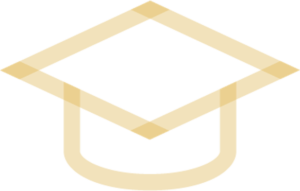
Maker Education
The maker movement is one of the most exciting educational innovations in recent decades. Maker education is based on three main theoretical and pedagogical pillars that have some shared ideas with the open schooling model: experiential education, constructionism, and critical pedagogy. The movement is underpinned by the work of educational theorists like the constructivists Jean Piaget and Seymour Papert. It promotes the idea that education should be more experiential and connected to real-world objects, seeks to empower learners and to create culturally tailored learning experiences.
Taken together, these views prescribe a framework which fits very well with the main focus of open schooling model: students work on personally or community-meaningful interdisciplinary projects, often freed from a scripted curriculum or school framework, empowered to make choices about their own learning, and using technologies to externalize their ideas in sophisticated ways.
Through the open schooling approach, students should perceive themselves as change makers, capable of producing transformations and impact others in their own community.
Service design
Make it Open uses creative design and development approaches to frame its methodology and ground work in the reality of the final users. It is a user-centered practice which helps to innovate or improve services to make them more useful, usable and desirable for stakeholders. Service design tools and approaches will explore the experience of all users and stakeholders of the open schooling ecosystem, and will anticipate their needs along the whole of their user journey, from awareness of the opportunity through to integrating these practices into their day to day. This consideration of stakeholders at early stages of the project will ground work in the reality of delivery and identify additional needs which may seem relatively trivial but may be central to the adoption, smooth running or legacy of the project across the range of delivery environments.
Have a look at the creative development process we followed to develop a set of user-friendly delivery templates for open schooling.
Citizen science
Citizen science is an approach where citizens participate and collaborate in scientific research to increase scientific knowledge by sharing and contributing to data monitoring and collection programmes. It encourages curiosity-driven research and a Do-It-Yourself attitude towards scientific issues. It also contributes to the development of digital and data literacy and citizenship skills. The result is that citizens learn to look around more consciously and realise that they have an impact on their own learning and living environment.
In Make it Open, students will be encouraged to develop measuring instruments to measure their surroundings, gather data and find out more about issues they care about. The method, called Citizen Sensing, will be geared towards environmental awareness. It will offer a new, creative and interactive approach towards science learning and data literacy. Students will be encouraged to reflect and undertake practical research on issues like: how healthy is our environment? What is the air quality in local communities and how can you measure and improve it? How polluted is the soil or swimming water? How do we experience noise and traffic pollution?
who we are
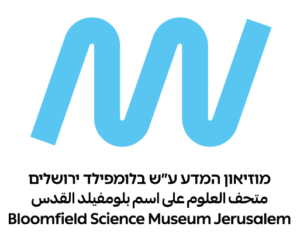
Bloomfield Science Museum Jerusalem
The Bloomfield Science Museum Jerusalem is a leading cultural and education institution in Israel. It operates under the joint auspice of the Hebrew University and the Jerusalem Foundation. The museum is an agent of change, offers its visitors access to science and technology, challenge them to think differently about the world and to become active citizen.
open website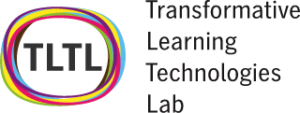
Columbia Transformative Learning Technologies Lab
The Transformative Learning Technologies Lab focuses on making STEM learning more connected to students’ intellectual interests, culture, and local knowledge about making things. The lab includes researchers who make school STEM more similar to professionals’ real science and engineering. Everything we develop supports making advanced STEM practices available to children and project-based, student-centered, constructionist learning.
open website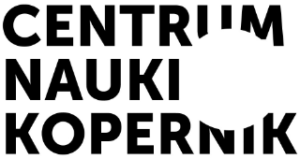
Copernicus Science Centre
Copernicus Science Centre in Warsaw is the biggest institution of that kind in Poland. The key activities are exhibitions with around 400 exhibits that enable visitors discovering natural and scientific phenomena. Copernicus is involved in local and national activities aimed at promoting science popularization and, from 2015, in performing research concerning education and human learning.
open website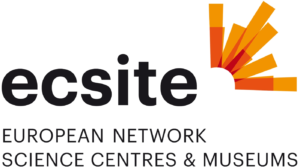
Ecsite
Ecsite, the European Network for Science Centres & Museums counts 322 member institutions located in 30 different countries. It facilitates co-operation among science centres and museums – establishing standards, sharing expertise, disseminating best practice, and developing training programmes. Ecsite members’ convening power draws more than 40 million citizens each year to science-related debates, exhibitions, workshops, events or platforms.
open website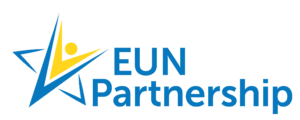
European Schoolnet
European Schoolnet is the network of 32 European Ministries of Education, based in Brussels. As a not-for-profit organisation, it aims to bring innovation in teaching and learning to their key stakeholders: Ministries of Education, schools, teachers, researchers, and industry partners.
open website
Forth
Forth is a creative studio built by researchers, designers & educators. Part R&D Lab, part consultancy with projects in high streets and workplaces, museums and schools, their strategies and programmes explore the needs and opportunities for engagement and learning in a changing world.
open website
Waag
Waag operates at the intersection of science, technology and the arts, focusing on technology as an instrument of social change, and guided by the values of fairness, openness and inclusivity. Together with experts from education, the arts and new media, Waag Learn develops contemporary and exciting teaching methods for learning in the 21st century.
open website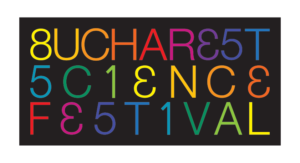
Asociaţia Secular-Umanistă din România
ASUR projects and campaigns are designed to popularize scientific knowledge and highlight the attributes of a secular state. ASUR is the organiser of Bucharest Science Festival, the first science festival in Romania. Since its first edition in 2013, the festival has constantly grown becoming the biggest science outreach event in the country with events in several major cities in addition to Bucharest.
open website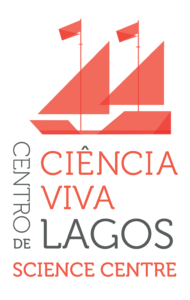
Centro Ciência Viva de Lagos
The Lagos Ciência Viva Science Centre (CCVL) integrates the National Network of Ciência Viva Science Centres, in Portugal. Their activities and mission aim to promote an active citizenship based on scientific knowledge and to create a social progress based on curiosity, creativity, critical thinking, engaging all citizens.
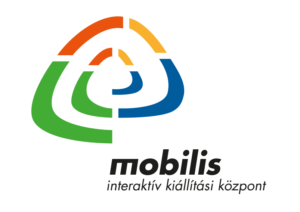
Mobilis
Mobilis is a science centre in Győr, Hungary. It welcomes more than 40,000 visitors a year and works closely with primary and secondary schools and with Széchenyi István University. The main exhibition area displays 74 interactive exhibits in 1200 sq meter. Mobilis also regularly organises education programmes, hands-on practical workshops and digital experiences for schools and other audiences.
open website
Museos Científicos Coruñeses
Museos Científicos Coruñeses (mc2) is a network of three scientific museums located in A Coruña, in northwestern Spain. They belong to the City Council. About 350,000 people come to visit them each year, of which more than 100,000 are kids on field trips. mc2 works in close collaboration with other science and technology outreach associations.
open website
SciCo
SciCo is a non-profit organisation, focusing on scientific engagement and empowerment, through innovative, interactive, and entertaining means. It consists of scientists, academics, educators, artists, and people with an interest in everyday science. Through numerous high-impact outreach activities, such as science festivals, digital platforms, workshops and educational programmes, SciCo has reached more than 400.000 people in Greece and internationally.
open website
Tom Tits Experiment
Tom Tits Experiment is one of the largest science centres in Sweden. In total, there are approximately 450 hands-on experiments in the science centre and in the surrounding park. Tom Tits’ mission is to promote the joy of discovery and help make science and technology engaging and accessible to all. To help them achieve their mission, they work closely with schools and collaborate with local companies, organizations and other science centres throughout Sweden.
open website